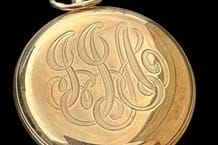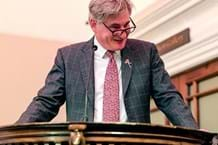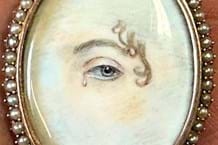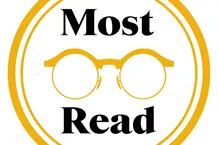The board, established 16 years ago to review and authenticate artworks by the Pop artist, has been subject to criticism and numerous lawsuits for its authentication practices. It will honour all requests for review received before October 19, but will not accept new submissions after that time.
Given the sheer volume of Warhol's output and his methods, authentication issues have become part of his legacy. At an annual cost of around $500,000, five Warhol scholars and curators have met three times a year to consider around 1200 submissions since 1995.
But it was the legal fees that followed lawsuits over rejected works that have made the not-for-profit Authentication Board untenable. The process of authenticating Warhols will now fall to the wider art market.
Recent litigants who believed their 'Warhols' were unfairly rejected included three owners of the so-called Red Series of self-portrait paintings: the London-based American Joe Simon-Whelan (see separate report here), the US collector Susan Shaer and the London dealer Anthony d'Offay.
D'Offay had hoped to include a Red Series portrait (that had been included with the artist's knowledge in a 1970 catalogue raisonné) in the 2008 Artist Rooms gift, but it was pulled after it was downgraded by the Authentication Board.
At worst, the foundation and the board were accused of conducting a conspiracy to inflate Warhol prices to benefit their own significant holdings by denying the authenticity of other works as a way to limit supply. The foundation remain in litigation with their liability insurer from whom they are seeking coverage of their legal fees which in 2010 alone were $7m.
A statement from the foundation said the move – a definite step back from the market that has used the authentication service for profit – reflected the need to focus on their primary charitable mission as a grant-giver to the visual arts. "Our money should be going to artists, not lawyers," said Warhol Foundation president Joel Wachs.
The foundation will continue their work in establishing the complete Warhol catalogue raisonné, but will now only accept requests to review works in their own time and when relevant to studies. Wachs is keen to stress that this serves a different function from a dedicated authentication board. "The catalogue raisonné serves a non-market purpose: Andy's legacy and Warhol scholarship. The market seems to want to use the authentication board, but that can't be our concern," he added.
Andy Warhol works (the foundation estimate there are more than 100,000 of them) accounted for an estimated 17 per cent of the Contemporary auction market in 2010.
By Roland Arkell




